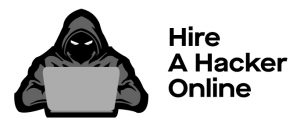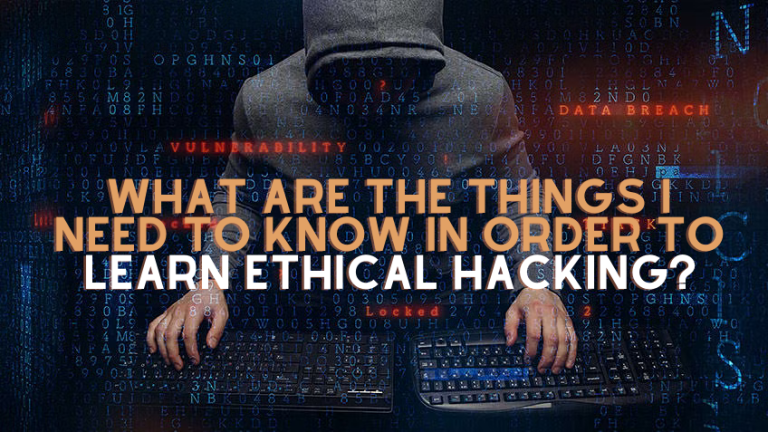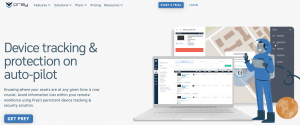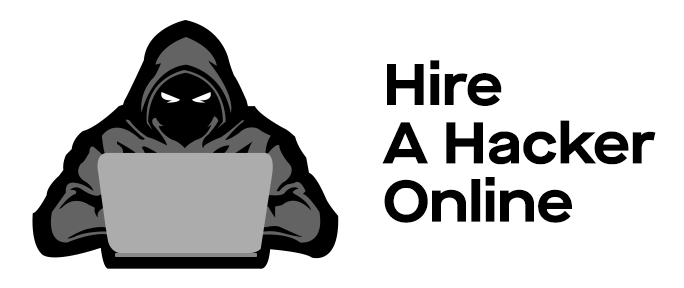The term “hacker” is often used to refer to computer programmers who gain unauthorized access to computer systems by taking advantage of weaknesses or vulnerabilities. These programmers may have nefarious or prankster-like intentions. This involves the development of algorithms that can crack passwords, infiltrate networks, and interfere with network functions.
The majority of hacking assaults are driven by the intent to steal valuable data or financial resources. However, hacking does not necessarily imply a hostile intent on the part of the hacker. Ethical hacking is the practice of breaking into a company’s computer security system with the intention of identifying weak spots and devising solutions to avoid such attacks.
A growing number of people are deciding to pursue careers in unethical hacking. It is preferable to begin by reading about the fundamentals of hacking before digging into books and enrolling in the finest ethical hacking training program, however, there are a few free courses available where novices may learn how to hack computers. These courses can be found on the internet.
Understanding the Fundamentals of Ethical Hacking
The term “Ethical Hacking” refers to any kind of hacking that is authorized by the owner of the system. Active security is another name for the practice of actively defending systems from malicious hackers. Active security is often referred to as “active defense.”
It entails getting beyond the security measures of a system in order to discover flaws and identify potential sources of data breaches and other potential dangers. In order for it to be called ethical, it must be carried out in accordance with the cyber laws of the organization and the surrounding area.
“Penetration testing” is the term used to describe the work that is being done here. This method’s purpose is to get access to a system while keeping a record of the steps that were taken to achieve that aim, as the name of the method suggests. As part of the introduction to the ethical hacking course, penetration testing is broken down into its component parts and covered in great depth.
The most important takeaway is that ethical hackers get entry to a system before criminal hackers do. The security team of an organization will be able to apply patches to the system, which will prevent hackers from breaking into the system or carrying out their plan to hack it.
Conditions for Learning Ethical Hacking
Since there are no set educational requirements for ethical hackers, each organization is free to develop its own.
However, for anybody interested in pursuing a career as an ethical hacker, a bachelor’s or master’s degree in information security, computer science, or even mathematics is a wonderful foundation.
Courses in programming, scripting, networking, and hardware engineering may be helpful for students who are interested in a career in ethical hacking. These provide a basic comprehension of the technologies that comprise the systems they will be working on.
Software development and system management are additional essential technological abilities. You may get a huge number of suggestions by searching for an online security school or an ethical hacking course for beginners. Try a free introductory hacking course to learn the fundamentals. For novices, internships and boot camps are excellent sources of practical ethical hacking experience.
Ethics in Hacking
Searches for “How to Become an Ethical Hacker” are common. To thrive in this field, you must first learn what talents you’ll need before diving in.
Some of the most essential skills to possess if you want to operate in this field are the ones listed below:
1. Understanding of computers and networking
An ethical hacker has to be well-versed in networks and technology. Hacking is the process of identifying weaknesses in networks and computer systems.
Candidates must thus be conversant with fundamental ideas in networking and computing, such as process injection and thread death. They should also be knowledgeable about fundamental concepts in networking, like the OSI model, IP addresses, MAC addresses, subnetting, and routing.
2. Expertise in operating systems
Another essential skill for ethical hacking is knowledge of operating systems. Linux is widely used as the operating system for web servers. As a consequence, understanding the many Linux distributions, including Ubuntu, Red Hat, etc., is necessary to spot cyberattacks and vulnerabilities.
3. Proficiency with Penetration Testing Methodology and Tools
You must be knowledgeable about penetration testing tools and techniques and have practical experience if you want to become a hacker.
To find vulnerabilities, white-hat hackers do a penetration test on an organization’s IT infrastructure. Enrolling in a class will help you develop your ethical hacking abilities.
4. Computer programming proficiency
One has to be an excellent programmer to succeed in this field. Starting a career in ethical hacking might be made easier with formal training in reading and writing code.
There are many different programming languages used by software and website developers. The ability to write in a variety of languages, like Python, BASH, and C++/C, may help you identify malicious code or programming problems.
5. Cybersecurity Essentials
Another essential skill to have when pursuing an ethical hacking certification program is knowledge of cybersecurity basics.
No of your level of expertise, you must learn the essentials, which include, among other things, database management systems, antivirus, app protection, device protection, and password management.
6. Cryptography skills
Being an ethical hacker requires you to ensure that texts and other kinds of communication inside your company are delivered and received without jeopardizing the privacy and confidentiality of the recipients.
In order to prevent hackers from reading intercepted text messages, cryptography transforms the content into an unreadable format.
7. Problem-Solving Skills
The complexity of cyberattacks is rising along with technology. To dissect attacks into their component elements and analyze them, ethical hackers need to be able to think critically and analytically.
Final thoughts
Nowadays, almost anything can be found online or through the Internet. Although digitizing everything is handy in the digital age, there are cons as well. Websites and applications that are used for eCommerce often have lax security.
Because of this, there is no more need for skilled ethical hackers. Check out KnowledgeHut’s top ethical hacking course if you want to start studying hacking. It’s also not difficult to locate places where you can acquire basic hacking skills for free, but being certified will increase your hiring appeal.







